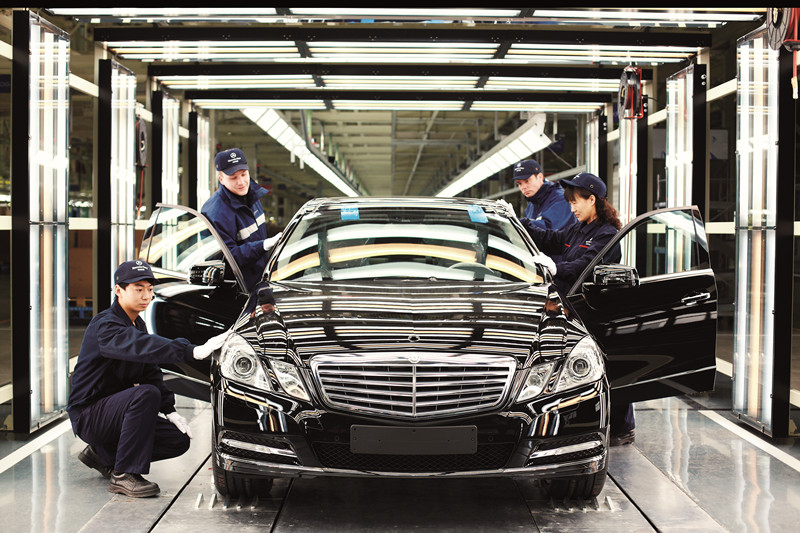Beijing: A City of Contrast, Tradition, and Modernity
Introduction:
Beijing, the capital city of China, stands as a symbol of the country's rich history, vibrant culture, and rapid modernization. With a legacy spanning over three millennia, Beijing has been at the heart of Chinese civilization, witnessing the rise and fall of dynasties, the construction of magnificent architectural wonders, and the transformation into a global metropolis. In this article, we will delve into the multifaceted layers of Beijing, exploring its historical significance, cultural heritage, and its dynamic role in the modern world.
Ancient Roots:
Beijing's history can be traced back to ancient times when it was known as Ji, a settlement dating back to the Western Zhou Dynasty (1046–771 BCE). Over the centuries, Beijing evolved into a strategic center of power and trade, serving as the capital for various dynasties, including the Liao, Jin, Yuan, Ming, and Qing. The city's strategic location along the northern trade routes contributed to its growth and prosperity, attracting merchants, scholars, and artisans from across China and beyond.
During the Yuan Dynasty (1271–1368), Beijing became the capital of China under Kublai Khan, who commissioned the construction of the grand imperial palace complex known as the Forbidden City. This sprawling architectural masterpiece served as the political and ceremonial center of the Chinese empire for nearly 500 years, symbolizing the wealth and prestige of the ruling dynasty.
Imperial Splendor:
The Ming (1368–1644) and Qing (1644–1912) dynasties further embellished Beijing with grandiose palaces, temples, and gardens, creating a cityscape that reflected the opulence and sophistication of imperial China. The Temple of Heaven, the Summer Palace, and the Ming Tombs are just a few examples of the architectural wonders that dot the Beijing skyline, each bearing witness to the artistic and cultural achievements of their respective eras.
One of Beijing's most iconic landmarks is the Great Wall of China, which stretches across the northern frontier of the city. Originally built as a defensive fortification during the Qin Dynasty (221–206 BCE), the Great Wall was continuously reinforced and expanded over the centuries, serving as a barrier against invading forces and a symbol of China's resilience and unity.
Cultural Heritage:
Beyond its majestic monuments and palaces, Beijing is also home to a rich tapestry of cultural traditions and customs that have been passed down through generations. The city's hutongs, narrow alleyways lined with traditional courtyard homes, offer a glimpse into Beijing's past, where daily life unfolds amidst the labyrinthine streets and bustling marketplaces.
Beijing's culinary scene is equally diverse, with a wide array of regional delicacies and street food vendors serving up flavors from across China. From savory Peking duck to aromatic dumplings and steaming bowls of noodles, Beijing's culinary offerings reflect the city's status as a melting pot of culinary influences.
Modern Metropolis:
In recent decades, Beijing has undergone rapid modernization and urban development, transforming into a global hub of commerce, technology, and innovation. The city's skyline is dominated by towering skyscrapers, including the iconic CCTV Headquarters and the futuristic Galaxy SOHO complex, which serve as symbols of China's economic prowess and ambition.
As the political and cultural capital of China, Beijing plays a central role in shaping the country's domestic and foreign policies. The city is home to the headquarters of the Chinese government, as well as numerous diplomatic missions, international organizations, and cultural institutions.
Challenges and Opportunities:
Despite its rapid growth and development, Beijing faces a myriad of challenges, including environmental pollution, traffic congestion, and social inequality. The city's rapid urbanization has placed strain on its infrastructure and natural resources, leading to concerns about air and water quality, as well as the preservation of historical landmarks and cultural heritage sites.
However, Beijing also presents a wealth of opportunities for innovation and sustainable development. The city is investing heavily in renewable energy, green transportation, and eco-friendly urban planning initiatives to address environmental concerns and improve the quality of life for its residents.
The story of Beijing continues to unfold as the city navigates the complexities of the modern era, balancing its rich history with the demands of a rapidly changing world. Here, we delve deeper into some of the key aspects shaping the present and future of this dynamic metropolis.
Economic Powerhouse:
Beijing's position as the political and cultural capital of China has also propelled it to become a major economic center. The city is home to numerous Fortune 500 companies, financial institutions, and technology giants, making it a magnet for investment and innovation. From the bustling business districts of Zhongguancun, known as China's Silicon Valley, to the luxury shopping malls of Wangfujing, Beijing's economic influence extends far beyond its borders.
Moreover, Beijing's hosting of the 2008 Summer Olympics was a milestone in the city's modern history, showcasing its ability to stage world-class events and attract global attention. The Olympics not only left a lasting legacy of state-of-the-art sports facilities and infrastructure but also helped to boost tourism and stimulate economic growth.
Cultural Renaissance:
While Beijing's rapid development has transformed its skyline, the city remains deeply rooted in its cultural heritage. In recent years, there has been a renewed interest in preserving and promoting traditional Chinese arts and crafts, as well as supporting emerging contemporary artists and cultural entrepreneurs.
The 798 Art District, once a dilapidated factory complex, has been transformed into a vibrant hub of galleries, studios, and creative spaces, showcasing the work of both established and up-and-coming artists. Meanwhile, traditional art forms such as calligraphy, painting, and Peking opera continue to thrive, with dedicated schools and academies preserving these ancient traditions for future generations.
Social Dynamics:
As Beijing continues to attract migrants from across China in search of better opportunities, the city grapples with issues of urbanization, social integration, and inequality. The rapid expansion of urban areas has led to the displacement of traditional communities, with many historic hutongs being demolished to make way for modern developments.
Moreover, Beijing's population growth has put pressure on public services, housing, and transportation infrastructure, exacerbating issues such as traffic congestion, pollution, and overcrowding. Efforts to address these challenges include urban renewal projects, investment in public transportation, and the implementation of environmental regulations aimed at improving air and water quality.
Global Connectivity:
In an increasingly interconnected world, Beijing plays a pivotal role in shaping global politics, economics, and culture. As China's capital and diplomatic hub, the city hosts a multitude of international conferences, summits, and events, providing a platform for dialogue and cooperation on a wide range of global issues.
Furthermore, Beijing's Belt and Road Initiative (BRI) seeks to enhance connectivity and promote economic cooperation across Asia, Africa, and Europe through infrastructure development, trade, and investment. As a key node in this ambitious initiative, Beijing aims to strengthen its ties with neighboring countries and foster regional stability and prosperity.
Looking Ahead:
As Beijing charts a course into the future, it faces both opportunities and challenges on multiple fronts. From sustainable urban development and environmental conservation to social equity and cultural revitalization, the city must navigate a complex landscape of competing priorities and interests.
At the same time, Beijing's resilience, resourcefulness, and spirit of innovation continue to drive its evolution as a dynamic global metropolis. Whether preserving its ancient heritage, embracing cutting-edge technology, or forging new partnerships on the world stage, Beijing remains a city of contrasts, complexities, and boundless possibilities. As it continues to shape the destiny of China and the world, the story of Beijing is one of enduring significance and endless potential.





































